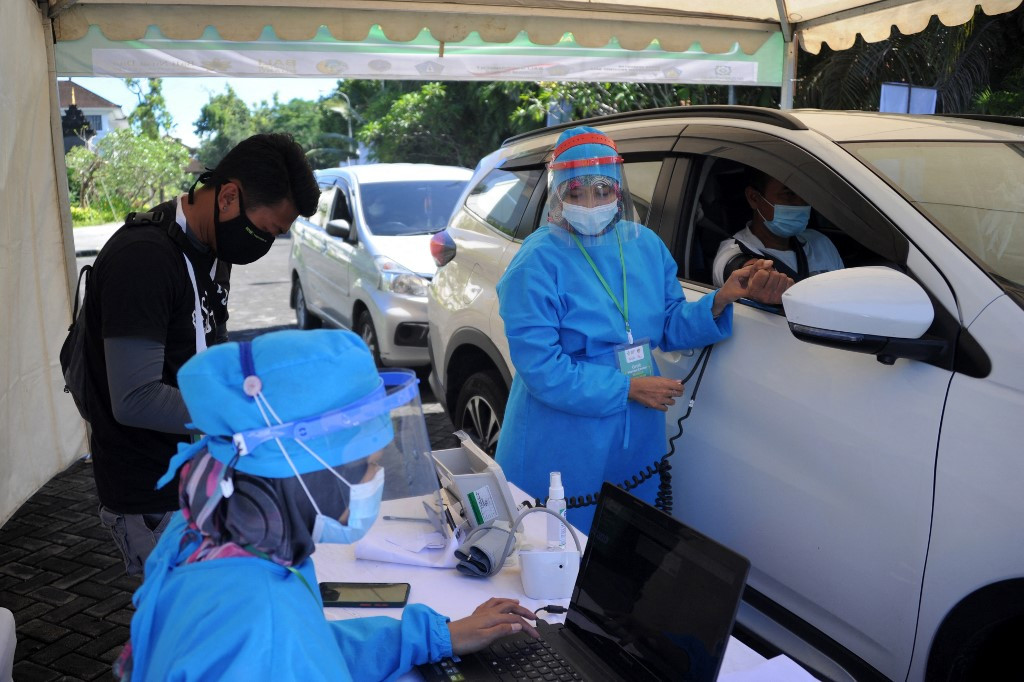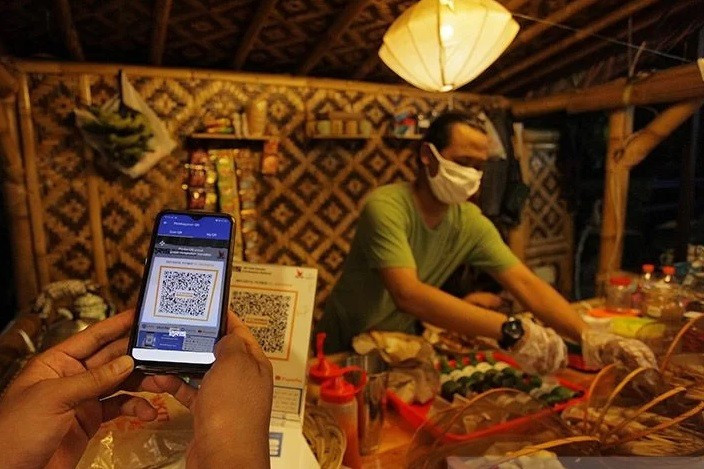Popular Reads
Top Results
Can't find what you're looking for?
View all search resultsPopular Reads
Top Results
Can't find what you're looking for?
View all search resultsSupply now, punish later
Anti-vaxxers notwithstanding, the reality today is that there are just so many people who want to get the vaccination.
Change text size
Gift Premium Articles
to Anyone
V
accine hesitancy is certainly a major problem today. If anything, we now need vaccinations more than at any other period during the COVID-19 pandemic. With the Delta variant now ravaging so many countries with terrifying ferocity and speed, the need to inoculate large sections of the population is more crucial than ever.
President Joko “Jokowi” Widodo certainly knows this. And as a leader who has constantly been reluctant to put the country’s economy on the backburner in favor of public health measures, he is banking on the massive vaccination campaign to put an end to the pandemic. Hence, his target of inoculating 1 million people per day in July and 2 million by August this year.
Anti-vaxxers or those who are vaccine-hesitant could certainly throw a spanner in the works and the authorities certainly think it is justified to mete out punishment to these people.
In February, President Jokowi revised a presidential regulation to make it mandatory for people to be vaccinated and those who reject the jab may be subject to fines or administrative sanctions, which range from delays in, or termination of, social aid to blocking access to public services.
Some local administrations have backed up the central government by issuing ordinances aimed at punishing vaccine-hesitant individuals. The Jakarta administration in a bylaw issued last year stipulates a fine of Rp 5 million (US$345) for those refusing to get the shot.
But using the threat of punishment to get people vaccinated should not be the only way to fight vaccine hesitancy. Not only is this the tactic adopted by hardline leaders, the likes of Philippines president Rodrigo Duterte who has pledged to arrest people refusing to get the COVID-19 vaccine, but the threat of punishment does not address the real problem at hand.
Anti-vaxxers notwithstanding, the reality today is that there are just so many people who want to get the vaccination, those who are willing to find wherever vaccination centers are open, ready to stand for hours in line while putting themselves at risk of catching COVID-19 with hundreds of others who throng shopping malls, sport facilities and health centers to get the shot.
Earlier this month, things were more complicated for these people when they had to show a valid ID or relevant proof of residence before they could be vaccinated. This requirement has been loosened and now it is easier for everyone to get the shots regardless of their address.
Dispensing a free and quick shot should be the primary responsibility of the government and accomplishing this should be the primary focus of the government. Only after the government can guarantee this, should it turn its attention to punishing those who are vaccine-hesitant or anti-vaxxers.
The government must also make sure that, due to a global scramble for vaccines, it continues to be able to procure vaccines from multiple sources for inoculating more than 181 million people by March 2022, the target set by President Jokowi as the goal to reach herd immunity.










